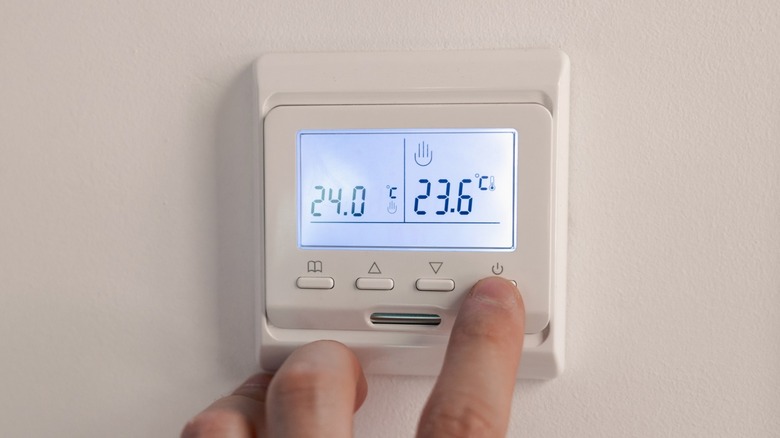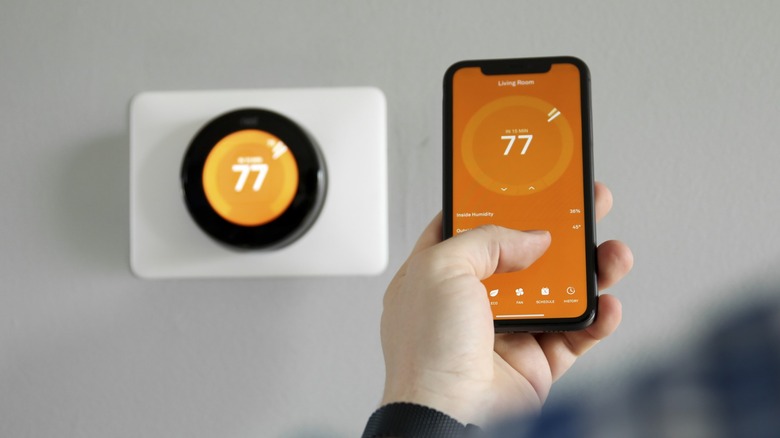Turning Your AC Off & On Each Day May Harm Your Unit (And Wallet) - Here's Why
People have been searching for ways to save money on air conditioning costs for the last half century (or longer). Even though, in recent years, improvements in air conditioner technology have led to some ACs being ranked among the most energy-efficient appliances in your home. Still, the cost of high electric bills may have some users resorting to turning the unit off when they leave home and switching it back on when they return in an effort to save money.
Unfortunately, this practice, while seemingly logical, could actually cause higher electric usage and harm the air conditioner unit, leading to costly repairs. Turning the AC off when leaving for the day could allow temperatures inside the home to become even hotter than those on the outside. Internal temps could easily reach over 100 when sunshine is streaming through uncovered windows or skylights, even if it's not that hot outside.
Starting an air conditioner under those conditions causes it to work harder than if it were left on all day, which could shorten its lifespan. For starters, since the AC pulls air from inside the living space, it has to cool that super-heated air. That means the AC has to run for a longer period without shutting off. These prolonged stretches of intensive use, pulling in hotter than normal air, can cause the unit to overheat. The excessive heat buildup can lead to damaged electrical components and refrigerant compressors inside the unit.
Why turning your AC off during the day doesn't save electricity
One key factor to consider is that every surface inside the home, such as walls, cabinets, furniture, flooring, etc., acts as a heat-sink when the home's internal temperature is allowed to rise. Once the air conditioner cools the air inside to the desired temperature, even the best home thermostats recognize it and shut the AC off. However, as the items inside release heat into the room, the air temperature inside rises again, causing the AC to cycle on to maintain the temperature setting. Much of the energy savings gained by shutting the system down is lost while re-cooling the home's interior.
The refrigerator and freezer are another point of concern. These appliances are designed to operate most efficiently at typical room temperatures, not in excessively warm environments. As the temperatures around them rise, they cycle on more frequently to keep the food inside at safe temperatures, using more electricity than usual. In addition to the refrigerator's increased electrical consumption, food safety is a legitimate concern in these conditions.
What's the best way to save money on air conditioning costs?
Installing a smart thermostat is one way to actually save money on heating and air conditioning costs. A smart thermostat takes the notion of turning your AC off while you're not home, and does it in a way that actually works, automatically. As we've discussed, there are a number of issues with turning your AC off during the day while you're gone. However, setting the thermostat a few degrees warmer while you're away can save money.
You could do this manually before walking out the door, but a smart thermostat does it without you having to remember another thing while on your way to work. One of the best features of a smart thermostat is that you don't have to come home to an uncomfortable temperature. While you can save money by keeping the temp warmer in the summer, or cooler in the winter, whenever you're at work, it can be programmed to return to your preferred setting before you arrive at home. As a bonus, if you're out later than planned, for work or pleasure, many smart thermostats have an app that allows you the ability to control the settings from your smartphone.
Other ways to cut cooling costs include using fans, installing weatherstripping around doors and windows, and installing thermal coverings on windows. Using a fan, whether it's a portable type or a ceiling fan, can increase air circulation, reducing the need for cooling by a degree or two in most cases.


